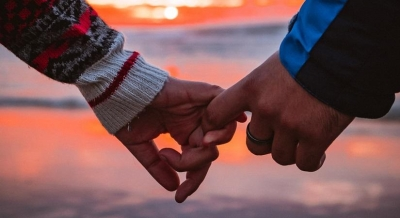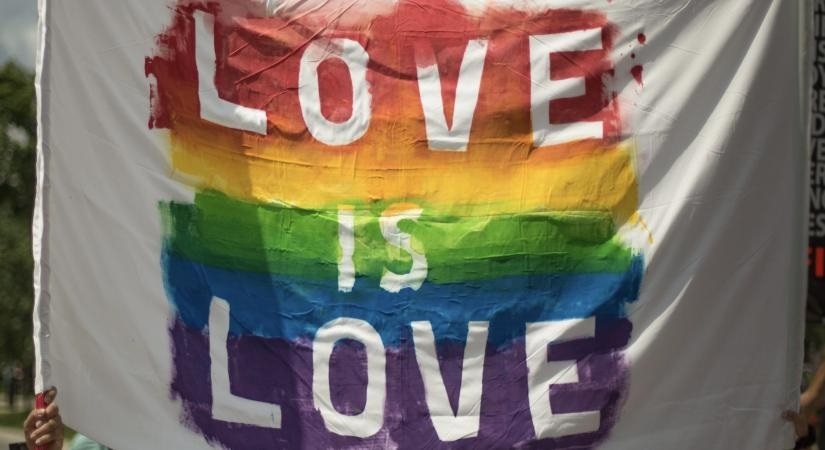
While Justices Ravindra Bhat, Narasimha, and Hima Kohli shared these positions, Chief Justice Chandrachud and Justice Sanjay Kishan Kaul held differing views. …reports Asian Lite News
In a majority ruling, a five-judge Supreme Court Constitution bench has determined that LGBTQIA+ couples do not possess an unconditional right to marriage.
The legal recognition of civil unions can only be achieved through enacted law, according to the bench, which was comprised of Chief Justice of India DY Chandrachud and Justices Sanjay Kishan Kaul, S Ravindra Bhat, Hima Kohli, and PS Narasimha.
This verdict, reserved on May 11 this year, does not, however, restrict the right of Queer individuals to enter into relationships, as stated by the apex court. The challenge to the Special Marriage Act (SMA) on the grounds of under-classification was also rejected by the court.
While Justices Ravindra Bhat, Narasimha, and Hima Kohli shared these positions, Chief Justice Chandrachud and Justice Sanjay Kishan Kaul held differing views.

The bench clarified at the outset that there were four separate judgments in this case, one each from Chief Justice Chandrachud, Justice Sanjay Kishan Kaul, Justice Ravindra Bhat, and Justice Narasimha. In his judgment, the Chief Justice issued directives that the Union and State governments must ensure there is no discrimination against the Queer community.
He emphasized the need to eliminate discrimination in access to goods and services for the queer community and called for public awareness about queer rights. The Union and State governments were also urged to create a hotline for the queer community to prevent harassment and establish safe houses for queer couples.
Additionally, the government was tasked with ensuring that intersex children are not compelled to undergo operations. The Chief Justice further emphasized that no person should be coerced into hormonal therapy, and harassment of the queer community through police inquiries into their sexual identity should be prohibited.
The police were directed not to force queer individuals to return to their natal families and to conduct a preliminary inquiry before filing an FIR against a queer couple regarding their relationship.
The Chief Justice asserted that the Court had the authority to hear this case and that Queer is a natural phenomenon that India has recognized for centuries, and it is neither urban nor elitist. He noted that marriage is not a fixed concept, and the Supreme Court cannot strike down the Special Marriage Act or insert words into it due to institutional constraints.
The failure of the State to acknowledge the range of rights that flow from a queer relationship constitutes discrimination. The Chief Justice contended that the right to enter into a union should not be restricted based on sexual orientation.
Transgender individuals in heterosexual relationships have the right to marry under existing laws, including personal laws. Concerning the adoption of children by queer couples, the Chief Justice’s judgment stated that unmarried couples, including queer couples, can jointly adopt a child. The Union Government, State Government, and Union Territories were instructed not to discriminate against the right of the queer community to enter into a union.
The Chief Justice directed the Union Government to form a committee to determine the rights and entitlements of individuals in queer unions. This committee was tasked with considering the inclusion of queer couples as a family on ration cards, enabling them to nominate joint bank accounts, and securing rights related to pension and gratuity, among other matters.

The committee’s report was to be reviewed at the Union Government level. In his concurring judgment, Justice Sanjay Kishan Kaul expressed that the legal recognition of same-sex unions represents a step toward marriage equality, emphasizing that marriage is not the ultimate goal.
He advocated for preserving autonomy while not infringing on the rights of others. Justice Ravindra Bhat and Justice Narasimha disagreed with the Chief Justice on various aspects of the judgment. Justice Bhat maintained that there is no absolute right to marriage but that the right to a relationship falls under Article 21.
This includes the right to choose a partner, engage in physical intimacy, and enjoy privacy and autonomy without societal interference. While acknowledging the right to choose a life partner, Justice Bhat asserted that the Court cannot obligate the State to recognize the spectrum of rights stemming from such a union since there is no constitutional right to marry or obtain legal recognition of unions among non-heterosexual couples.
He further noted that a gender-neutral interpretation of the Special Marriage Act might not always be equitable and could inadvertently expose women to vulnerability. Justice Bhat also disagreed with the Chief Justice regarding the adoption of children by queer couples.
In his conclusion, Justice Bhat stated that there is no unqualified right to marriage, and legal status for civil unions can only be granted through enacted law. However, these findings do not restrict the right of queer individuals to enter into relationships. In his order, Justice Bhat also clarified that the challenge to the Special Marriage Act on the grounds of under-classification was not justified.
Transgender individuals in same-sex relationships have the right to marry, and the State must ensure that queer individuals are not subjected to harassment. Justice Hima Kohli concurred with the views of Justice Ravindra Bhat, while Justice Narasimha also supported Justice Bhat’s perspective.
This five-judge Constitution bench addressed a series of petitions concerning marriage equality rights for the LGBTQIA+ community. The order was reserved on May 11 after arguments from all sides concluded. The Constitution bench commenced hearings on April 18, which continued for nearly ten days.
The court clarified that it would address the matter under the provisions of the Special Marriage Act and would not delve into personal laws on this matter. The Centre opposed the plea, asserting that the issue should be considered by Parliament rather than the court.
The Centre labeled it an urban elite concept, but the court disagreed. During the hearing, the Centre agreed to examine certain rights for LGBTQIA+ individuals but opposed legal recognition for same-sex couples.”
ALSO READ: 2 Indian-origin Israeli security officers killed in Hamas attack


